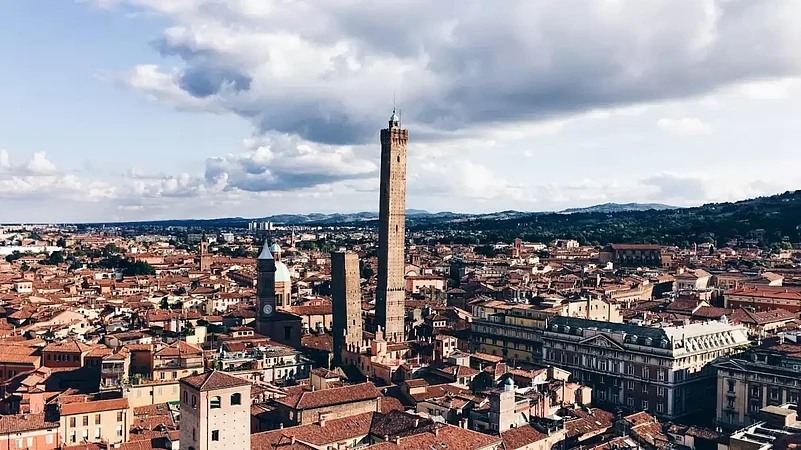The iconic Garisenda tower, a leaning marvel that has graced the Bologna skyline for nearly a millennium, is under the threat of a potential collapse, prompting the city to implement a civil protection plan.
Following recent investigations, the city council unveiled a comprehensive strategy to address the risk, highlighted in a 27-page report by the scientific committee monitoring the site since 2019.
The plan involves the construction of a protective metal cordon, firmly fixed into the ground, equipped with specially designed rockfall protection nets. The cordon aims to contain potential debris, mitigate vulnerability to surrounding structures, and restrict public access to the endangered area, according to a statement from the city council.
According to CNN, the 27-page report places the site on "high alert," citing an "unexpected and accelerated trend" of compression at the tower's base. The report reveals gradual disintegration of the stone cladding at the base and expanding cracks in the brickwork above. While consolidation works were underway, they have now been halted, and an exclusion zone is to be swiftly established.
Despite the urgency of the situation, a spokesperson told CNN that immediate collapse is not imminent. The precautions are currently on a "yellow" alert, signaling a high-risk scenario rather than an immediate threat. The spokesperson further explained, "We're acting as if it's about to collapse, but nobody knows when that could be – it could be three months, 10 years, or 20 years."
The Garisenda tower leans at a four-degree angle, slightly less than the Leaning Tower of Pisa's five degrees and has been a subject of concern since 2020 due to the gradual deterioration of the rock at its base and vertical cracks in its bricks. Extreme weather events, including high temperatures and flooding, are believed to have exacerbated the structural issues, as stated by the council spokesperson.
To address the impending risk, the city council plans to deliver materials for the protective cordon to a site near the tower in the coming weeks, with completion scheduled for February. Renderings, however, reveal bright red barriers that may disappoint those expecting a seamless integration with the medieval surroundings. The report emphasizes the temporary nature of these measures, insisting on their reversibility.
Upon cordon installation, the council will initiate research in two phases: stabilizing the tower and addressing the underlying problem. The first phase may involve creating a metal "cage" for the structure, while the second phase remains a subject of debate within the community.
Undoubtedly, these preservation efforts come at a significant cost. The cordon alone is estimated at 4.4 million euros (approximately $4.8 million), with additional stabilizing work expected to cost "millions and millions." To finance the project, the council has launched an online fundraiser with a goal of 3 million euros, already garnering 800,000 euros in a week.
A council spokesperson concluded, "The twin towers are one of the symbols of the city, along with the UNESCO-protected porticoes. This isn't just about saving a heritage site; it also has a very strong symbolic value."


























